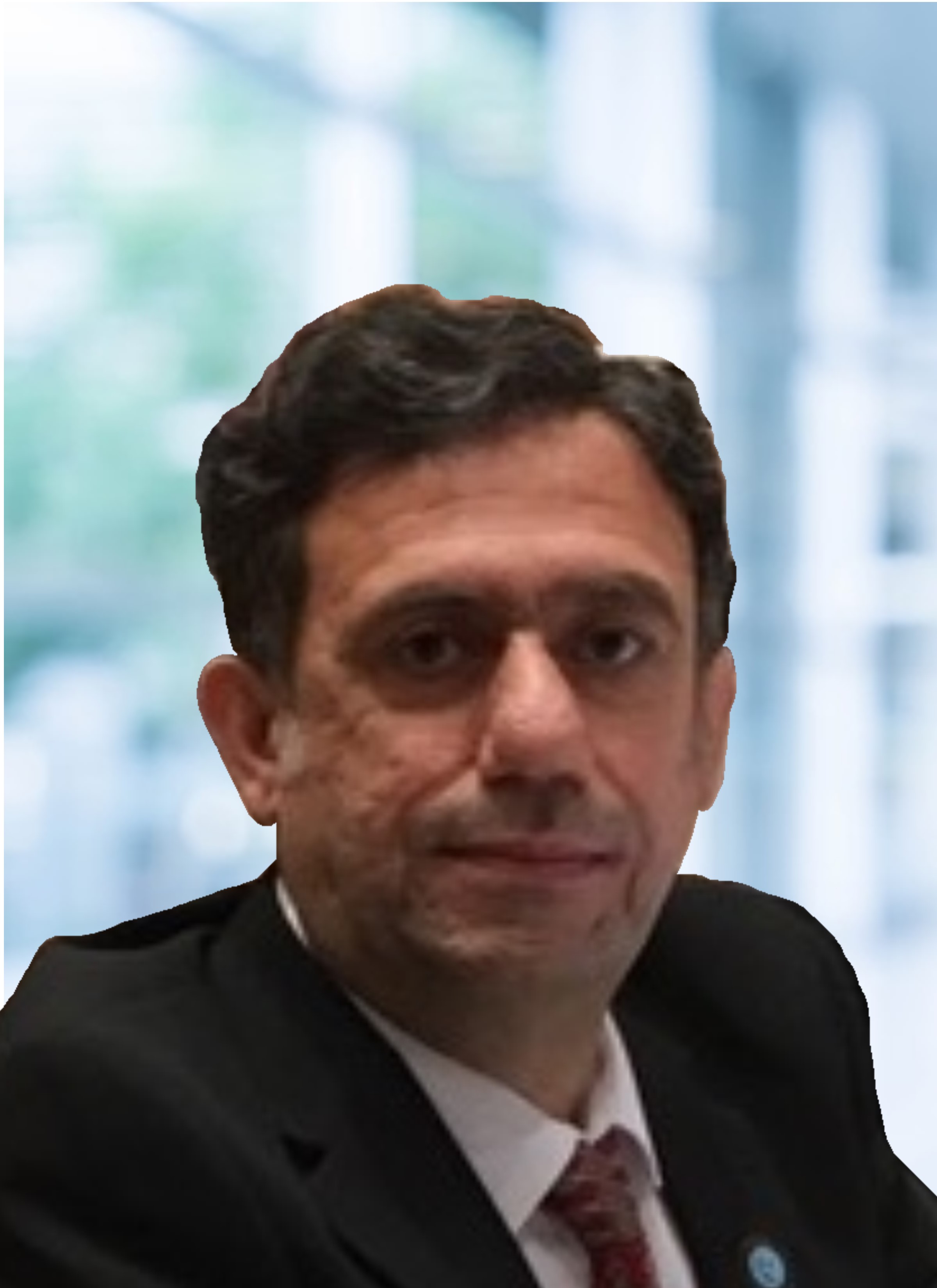

Founder and CEO of European Centre for Middle Eastern Studies
The issue of women is one of the most complex issues in social and political contexts, as gender equality is an ongoing challenge for modern societies. This research examines the social, economic, political, and cultural roots of inequality between women and men, and the challenges facing feminist movements in their quest for social justice.
Analyzing and studying the structural structure that hinders women's progress contributes significantly to providing a critical framework for understanding feminist issues in the Arab region, focusing on the importance of intellectual and social emancipation to achieve true equality.
The issue of women continues to be one of the main axes that reflect the image of human societies and their degree of development. For decades, women's rights have been part of global conversations about social justice and human rights. Despite the successes achieved in some countries in terms of promoting women's rights and gender equality, many challenges remain, especially in Arab societies. This issue is intertwined with many factors, such as religious and cultural influences and economic and social structures, making it one of the most complex and important issues
In this framework, we will address the structural roots of gender discrimination in the Arab world through a comprehensive analysis based on the latest academic studies and theories. We will also review feminist movements as a key factor in the struggle for gender justice, as well as the impact of democratic transitions on the status of women in Arab societies. In addition to the cultural, religious and economic dimensions that constitute a large part of the obstacles facing the realization of gender equality, to provide a detailed vision of how to overcome these obstacles.
Expanded theoretical framework:
Feminism is not just a rights issue, but part of a broader struggle to liberate societies from various forms of oppression. Nor is women's liberation an end in itself, but rather an integral part of achieving a liberal and democratic society that guarantees justice and equality for all.
Feminist studies as an academic field have undergone significant development since its emergence in the mid-20th century. Initially, these studies focused on analyzing the role of women in society and the discrimination women face, but they have evolved to include broader dimensions related to the cultural and political structures that produce and reproduce this discrimination. One of the most prominent thinkers in this field is Judith Butler, who provided a new vision of the concept of gender, considering it a social construct rather than a biological determinant. This analysis shows how gender roles are not just individual practices but are the product of systems of power and domination embedded in societies. 1
In the Arab context, feminism faces particular challenges related to the influence of religion and patriarchal culture on women's issues. In this context, the concept of “intersectionality” developed by Kimberly Crenshaw is an important tool for understanding how social factors such as race, gender, and class interact to shape multiple forms of discrimination. In the Arab world, this can be clearly seen in the disparity between women in rural areas compared to cities and urban areas, with more complex socio-economic constraints.
Challenges to feminist movements:
Feminist movements in the Arab region face significant challenges, stemming from the nature of the social, cultural and political structure. The cultural and religious structure is one of the main obstacles facing feminist movements in the Arab world. In many cases, religious texts are used to justify social practices that reinforce gender discrimination, such as restricting women's rights to work or education. However, there are serious attempts to reread religious texts from a perspective that promotes the values of justice and equality2. A notable example is Tunisia, which has reformed its personal status laws in line with human rights principles, such as granting women equal rights to divorce and child custody.
On the other hand, economic empowerment is a major challenge in Arab societies. Studies show that women suffer from legal and social constraints that prevent them from accessing equal economic opportunities. For example, many laws in the Arab region require the approval of a husband or father before a woman can start a business or travel for work. Moreover, women are often confined to traditional, low-income jobs, such as teaching or healthcare3, while being excluded from the more influential technological and industrial sectors. While economic empowerment is a step towards women's independence, it is often formalized or marginalized.
Perhaps the biggest challenge lies in redefining the role of women in the national production process, so that their contribution is real and influential, and not just a means of promoting marginal work. Another challenge facing feminist movements is the negative perception of women's liberation as a threat to traditional social norms. In many societies, feminist movements are seen as Western movements that seek to dismantle the family and destroy traditional values, and women's freedom is an invitation to moral decay, as a result of associating liberation with sexual vulgarity. This view presents an intellectual challenge for feminist movements, as they need to reformulate the concept of liberation in a way that emphasizes women's humanity and responsibility. These misconceptions hinder feminist movements from achieving their goals and force them to work within restrictive social contexts.
Feminism and democratic transitions:
Women's liberation cannot be separated from the broader contexts of democratic transitions. Societies that seek to enshrine the principles of freedom and justice cannot ignore women's issues. Women's liberation means liberating society from gender constraints that limit its ability to achieve full equality.
Therefore, democratic transitions are an important opportunity to support women's issues and promote their rights. Democracy is not just a political system that guarantees rights, but a cultural and value framework through which social justice can be promoted. In the Arab world, feminist movements have played a pivotal role in promoting democratic4 values, as happened in Tunisia, which is considered a pioneering model in this field. The political shifts after the Tunisian revolution paved the way for the passage of laws that support women's rights, such as the 20175 Law on Combating Violence Against Women. Changing the legal and value system of society is essential for democratization. In this sense, feminist movements are an integral part of any liberation project that aims to build a balanced society, where the dignity of all is respected regardless of their gender. In order to prioritize “innate human sense,” women must be liberated from their femininity, meaning that they do not view the world through their femininity, but rather as conscious and responsible human beings, and thus not as slaves and possessors of their feminine charms by using their bodies to achieve any goals.
Therefore, any movement that seeks to bring about fundamental democratic transformations must have a role for a conscious feminist movement, and any feminist movement will not achieve its goals if it is isolated from other liberatory forces in society.
International experiences such as South Africa and South Korea have shown that feminist movements have always been part of the general struggle against authoritarianism. In these countries, women's issues were not seen as a separate issue but as an integral part of the project of social justice and democracy.
Religion and the sacred as a tool of domination:
In many Arab societies, religion and the sacred form a major component of social consciousness. This leads to the use of religion as a tool to perpetuate the current social order, hindering its progress and emancipation. Religion itself is not an obstacle to women's rights, but the issue lies in its use as a tool to justify male domination. In many Arab societies, religious texts are interpreted in a way that reinforces patriarchy and restricts women's rights. Islamic feminism, a current of thought that has emerged in recent decades, seeks to dismantle these frameworks by offering alternative readings of religious texts. Researcher Amna Wadud is one of the most prominent voices in this field, calling for a reinterpretation of religious texts in line with the values of equality and justice6. Feminist activism is not necessarily directed against religion as a faith, in societies where religion is still an essential component of the cultural and spiritual structure, but rather against its use as a tool of social domination. The focus here should be on creating more humane and inclusive social values that promote equality and human dignity.
Ethics and women's issues:
Traditional cultural systems reinforce the inferiority of women, hindering the realization of equality. In many societies, religion is used as a tool to perpetuate discrimination, imposing strict gender roles that make women inferior to men. Morality as a value system is not static and changes as societies evolve. In this context, feminist movements redefine morality away from the idea of guardianship to promoting individual and societal responsibility. Instead of treating women as an entity that needs to be protected, feminism advocates viewing them as autonomous individuals capable of making their own decisions. This shift in ethical concepts is necessary to achieve gender equality and strengthen women's place in society.
Most of those who stand against women's liberation and equality find that women's liberation leads to moral decay, and this is mainly due to two reasons: First, because some of the advocates of women's freedom limit their liberation to the sexual aspect, and this call for freedom has become vulgar and plays into the hands of reactionary forces more than it serves women's issues and the realization of their freedom and equality. Limiting liberation to sex and sexual vulgarity harms women as conscious and responsible human beings, as those who believe that women are vessels to satisfy the sexual desires of men, on the one hand, and those who practice sexual vulgarity, on the other, both proceed from the same intellectual premises, although they differ outwardly.
Sexual vulgarity is the excessive use of women's curves and sexual practice, as he does not find women otherwise, or he sees those curves as more important, which is a contempt for women and their full humanity, which is no different from dealing with them as slaves, and therefore both sides deal with women as a sexual commodity, whether it is a price for the first team or free for the second team.
The second reason is due to our understanding of morality, and whether it is a fixed or changing value. Morality is our criterion for determining right from wrong, which depends on several sources, such as religion, upbringing, customs and education. Therefore, intellectual premises that treat women as minor beings lead to a judgment that they are unable to freely determine right from wrong.
Tyranny is not based on an intellectual vacuum, but rather on the idea that the other person is unable to know his interests or protect himself, so his freedom is taken away because he misuses it, so women's freedom means moral decay because they are unable to make a correct moral judgment, and this is basically the intellectual premise of both tyranny and the oppression of women.
Economic empowerment as part of overall liberation:
Economic empowerment is not just a means to achieve women's financial independence; it is part of a comprehensive emancipation process that aims to change the structure of society. To achieve this, we must focus on educational and economic policies that promote women's participation in non-traditional sectors. Women's economic empowerment can be a first step towards their independence, but it is not enough to achieve full emancipation. The focus must be on redefining the role of women in society, not only as producers, but as social and political actors who contribute to decision-making. The national production process is the true measure of women's economic empowerment. Women's contribution to the economy must be meaningful and impactful, not just secondary roles that keep them in a marginalized position.
For example, training programs focused on science, technology, and engineering should be provided, along with economic incentives that encourage women to enter the labor market. Moreover, the World Economic Forum's Gender Gap Study (2023) indicates that the gender gap in labor force participation in the Arab region is among the highest7 globally, so reforming laws that limit women's economic opportunities is an essential step to achieving equality.
Conclusion
Feminism is not just a human rights issue but a comprehensive liberation project that seeks to free human beings from all forms of injustice. To achieve this, there must be integrated efforts that include reforming laws, promoting education, and launching awareness campaigns that change traditional perceptions of women's roles. Cooperation between Arab countries should be strengthened to exchange experiences and develop joint policies that achieve real progress on women's issues.
Butler, J. (1990). Gender Trouble: Feminism and the Subversion of Identity.
السعداوي، نوال. (2001). المرأة والدين والأخلاق.
World Bank. (2023). Women, Business and the Law 2023.
Hassim, S. (2006). Women’s Organizations and Democracy in South Africa: Contesting Authority.
Charrad, M. M. (2001). States and Women’s Rights: The Making of Postcolonial Tunisia, Algeria, and Morocco.
Wadud, A. (2006). Inside the Gender Jihad: Women’s Reform in Islam
World Economic Forum. (2023). Global Gender Gap Report.



